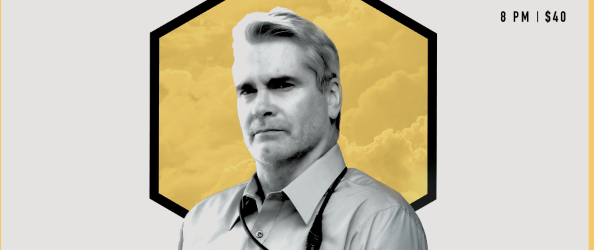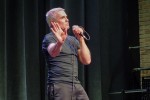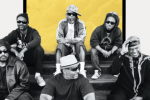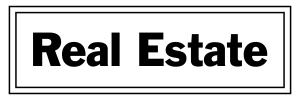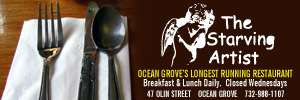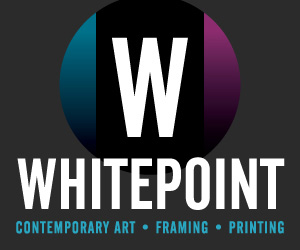Sun’s Q&A with Henry Rollins
From Punk rock icon to actor, writer, DJ, and spoken word artist
Asbury Park has been a continual stop on Henry Rollins’ tour schedule since 1982 when he performed at the Fast Lane as front man for punk rock band Black Flag.
He returns next month for 2 sold-out spoken word performance as a part the House of Independents’ grand opening showcases.
The Cookman Avenue venue opens Nov. 25, with Rollins’ shows running on December 11 and 12.
The Asbury Park Sun had a chance to speak with Rollins, 54, about his life, career, and journey via telephone from his Los Angeles, Calif.
Q: Tell me about your relationship with Asbury Park.
A: Touring for me is you go where there is an audience. I try to get to Asbury on every tour. I’ve been playing there since 1982. It is rough in parts but the people have always been great to me. I have an audience there that like me.
I’ve never had a bad time there although I was hassled by a bouncer once because he didn’t believe I was a part of the band. That was at Fast Lane.
Q: Aside from the two shows, how will you spend your time in our city?
A: I’ll be ‘training’ it in from Manhattan. Usually, show day is all about the venue, sound check, lighting, food, sleep, preparation, and if there is enough time –going to gym. The next day I’ll probably have breakfast, go to gym, and the record store. The focus begins at 3 p.m. for the 8 p.m. show.
Q: When did your speaking tours begin?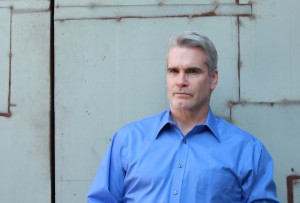
A: I started on the stage in 1983 by 1985 I was touring internationally and by 1995 I was traveling globally to several countries. Now my tours include North America, Europe, Australia, New Zealand, Kiev, Nepal, Sri Lanka, Siberia, North Korea, South Sudan, and Iran. The 2016 tour has close to 200 shows in 20 countries.
Q: What is the key to being a good storyteller?
A: Good material. A great story teller can make a trip to the grocery store really good but I wouldn’t want to have to work that hard to put that much lipstick on a pig. I’ve been doing this for 30-something years. What you need is really good ingredients and obviously it’s about the way you tell the story. You have to lift the story from a mere reportage of information. You have to find the part of it that sings – that part that is human.
Q: Where do you find the material for your spoken word shows?
A: I travel all over the world, taking down all the information that I can. I write in journals and take a lot of photos. When I go these places I’m looking for the human element so I can tell you something. When I go to these places I talk to a ton of people so that what I bring to stage is something you can relate to.
Q: How do you craft the material?
A: What I often do is pick some sidewalk or treadmill, find a fixed spot to stare at, and start talking the story out loud so I can hear myself tell the story. After mulling over for several days, it might be that one small part of the story – what you think might be the minutia – that becomes the star of the show. That to me is what makes good storytelling.
There is a lot of humor in what I do. When I go to a show I want someone to blow my mind – tap into it where it doesn’t seem like some guy from Mars telling me something I can’t relate to. You basically want to bring a lot of sensitivity and awareness to the stage.
Q: What’s the biggest challenge?
A: Because a lot of my venues are in foreign countries, I need to bring stories that if there are Homo sapiens in the building, and you will get to them in a meaningful, substantive way. I need to be able to tell stories every night. You will live with the voices, these characters for 11 months so they better be real amazing – some Harrison Ford strength amazing. I’m not into cheap humor, I don’t like cursing on the stage. That’s the art of it, the pressure is on me.
Q: What’s the greatest influence or inspiration in your life? 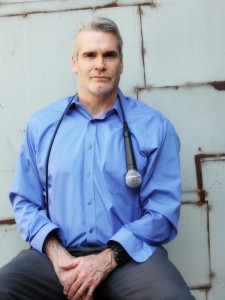
A: The greatest influence, inspiration and force in my life is basically winning the lottery. I come from a high school diploma education in Washing DC northwest area. I went into minimum wage working world but was given the opportunity to audition for Black Flag [who was my favorite band]. They knew of me and I knew them. When I was asked if I’d like to audition, there I was with a Haagen-Dazs ice cream scoop in hand and I said yeah I’ll audition – and I got it.
Q: How did your life change?
A: There I was leaving my home of 20 years to join this crazy band. I was singing in a band that was really taking off. The change was monumental. Now all of a sudden I have cops glaring at me. I’d never had problem with the cops but here I was part of the punk band and they were looking at me. One thing led to another and all of a sudden, in a way you’re a rock star. Then you are in movies and television shows, and you’re writing books and doing speaking shows in New Jersey. Coming from that, I realize what a lucky bastard I am, not only having this creative energy but having a vehicle for it.
There are so many really talented and creative people out there who never get a chance to really plug in past open mic night or the band that never gets out of playing in that garage. There are so many people who never find or take an opportunity or have the right circumstance or geographical location – but I did. I’m not good at any of this. I’m not qualified for any of this. I’m not trained in anything. I’ve just swung from one vine to another and walked without a net across a tight rope of opportunity. Listen, I don’t have a plan for 2016. I just put one foot forward into this abyss and hope it lands on something.
Q: Is there a defining moment in your life?
A: Joining Black Flag. Everything changed. I was a really normal guy who went on to living in a van with three other guys. I mean we were sleeping in a van hoping we didn’t get fleas but it was insanely normal in a lot of ways. When I first started out there was Led Zeppelin, Europe, Aerosmith and Ted Nugent but then punk rock hit and then I said – this is what I’m talking about.
Q: Do you have a favorite singer/songwriter, band, or album that you always go back to?
A: There’s so many. There’s Black Sabbath and the Velvet Underground but I have to say it was Iggy and the Stooges. ‘Fun House’ or ‘Raw Power’ hits me just as hard as when I first heard it 40 years ago. Their songs hit me at such a visceral, primal point; like carbon or water at the elemental level. I mean that’s the ultimate – you’ll never be better than that.
Q: Is there something that you have not done that you’d like to try?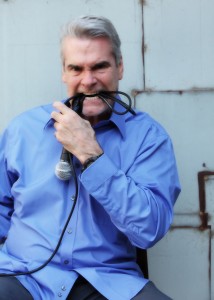
A: No. I hit the places I’d like to go, do the things I’d like to and write about it. I’m one of those targeted people with a long list. I won’t ever get to all of it but all my stuff is a list.
Q: You once said your friend Ian MacKaye, Mohamad Ali and Abraham Lincoln were among your favorite people. Did you ever meet Ali?
A: No, But Ian has a great story about when Ali visited his high school. Besides the fighting skill, which is amazing, for me it was the things he said and when he said them, which at the time, could have gotten an African-American man shot in America. He was an extremely — here’s what I’m thinking right now kind of man, very unguarded and charismatic. He could talk the talk and obviously walk the walk. He was the complete package. I wish I had some of that.
As for Lincoln, the most you can get out of Lincoln is that he was a prolific writer. Thankfully we have the Lincoln Douglas debates. I mean here were these men who would get up and speak for 3½ hours and then there’d would be a dinner break and then the other guy would get up and speak until one in the morning. Lincoln’s speeches are an example of some of the most beautiful use of the English language. I get it and I agree and I want my America to be that. He really thought we could deliver at such a high level of morality and decency. Even in his early speeches, at 29, he’s just staggering. He really saw the awfulness of slavery and saw what America could be. You look at his face in those famous [Mathew] Brady photos and you can see how he resembles Johnson. The sadness and the strength.
Harry Belafonte is another man that I admire. So many people don’t know all that he’s done. I’d walk across a field of broken glass to shake his hand.
These people show you can get done. Basically your life is your scrub. People of lesser means with greater challenges have achieved more than you and I put together.
Q: Are you a workaholic?
A: Yes. I medicate with work. My mind unoccupied is a depressing place. When I have nothing going on I get bummed out so I medicate with work and music. It’s better to keep moving.
Q: Can you give me an update on “He Never Died?”
A: The Indiegogo campaign failed, however the film is making the festival round to great packed houses. It’s a good film. For now we are doing the festival circuit all over the world. It’s doing better than we ever thought it would. Right now we are working extremely hard to make it into a television thing.
We were in Canada a few days ago pitching it as a television show. That was always the plan and all that first season is written. We went to Toronto, were taking meetings, showed the trailer and said here all the scripts. All the meeting went well but you never know. I’ve been in a million pitches and they all end like that. We’ll keep working on that until we’ve exhausted every possible avenue.
Q: How did you come to be a part of Sons of Anarchy?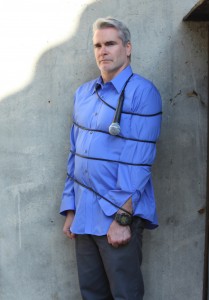
A: I got a phone call saying that Kurt Sutter wanted to meet with me. I said of course. We basically had a long conversation about neo Nazis. I asked when do I audition and he said Oh, there’s no audition. I just wanted to gauge your interest. I said, did I just get the job, and he said yeah. Nothing like that had ever happened to me. I’m usually the guy auditioning in a line with eight other people.
Q: Tell me about the experience?
A: Whenever you are in a show there’s a chance there will be a diva, prima donna, or the psycho and you just have to work around. I’m very good at getting along with people who make it difficult but within 2 hours of being on set, every single actor and crew person came up and said they were so glad I was there. I’ve never been made to feel so welcome anywhere, in any show. There was a high quality of acting but no one took themselves seriously. They took the work seriously.
Q: How do keep the show business stamina?
A: In my business you have understand that it’s not personal. It’s just how it works. If I didn’t get the part, it’s not that I suck, it’s just that I wasn’t right for the part. I just have to not take anything personally.
In my line of work, I have no steady income. Well there’s the weekly columns in Rolling Stone Australia and LA Weekly, and the radio show, but I haven’t had that stability [of a steady paycheck] since 1981. So, I save and live accordingly. I live 20 million miles below my means because I live on approval. You just have to love it every day because one day it’s over.
Henry Rollins’ work includes:
Actor
- Recurring guest star in the FX television drama Sons of Anarchy as neo-Nazi villain AJ Weston.
- Starring role in the movie He Never Diedfrom writer/director Jason Krawczyk (The Briefcase).
- Henry’s previous acting credits span more than 20 films, including David Lynch’s Lost Highway, Bad Boys II, and voice work for animated series including American Dad, Cartoon Network’s Adventure Time, and others.
TV Host
- Host of The History Channel’s H2 network show 10 Things You Don’t Know About.
- Host of the National Geographic television series Animal Underworld With Henry Rollins.
- Host of National Geographic Explorerspecial Born To Rage.
- Film critic and interviewer on The Henry Rollins Show(and, previously, Henry’s Film Corner) on IFC, the Independent Film Channel.
Spoken Word Performer
- Henry is well known for his popular spoken word performances, or “talking shows” as he calls them, are a seamless (yet seemingly extemporaneous) mix of political commentary and personal anecdote, full of humor, outrage, pop culture, along with a healthy dose of skepticism.
- 2014 Keynote speaker at the LA Times Travel Convention
- In 2013, Henry was chosen as the keynote speaker at the Association of College and Research Librarians Conference. Keynote speaker at California Library Association Conference.
DJ
- Henry hosts a great mix of all kinds of music weekly every Sunday night on L.A.’s acclaimed public radio station KCRW. The show airs Sunday nights from 8-10pm Pacific, and streams online at KCRW.com.
- From 2004-2009, Henry hosted the show “Harmony In My Head” on L.A.’s now-defunct Indie 103.1 FM. (His trilogy of Fanatic!books put Henry’s passion for music on display with meticulously annotated playlists from this show.)
Author
- Henry Rollins: The Column! Appears every Thursday in the LA Weekly.
- Author of more than 25 books, including the Black Coffee Blues, Broken Summers, and Get in the Van. Henry’s first book of photography, Occupants, was released in 2011 by Chicago Review Press, showcasing a stunning collection of photos and essays from Henry’s international travels
- Released on his own 2.13.61 imprint, Before the Chop: LA Weekly Articles 2011-2012)compiles Henry’s first 100 LA Weekly columns in their original, unedited form.
- The travelogue series, A Grim Detail, A Mad Dash, A Preferred Blurand A Dull Roar document Henry’s travels through the years 2006-2010, detailing trips from Los Angeles, to Asia, Africa, the Middle East, and Europe.
Music
- Before leading the Grammy-nominated Rollins Band, Henry made his mark as the frenetic front man for legendary band Black Flag.
- Rollins Band performed at the 37th Annual GRAMMY Awards, and was nominated for Best Metal Performance that same year for the song “Liar.”
- Henry spearheaded the West Memphis Three benefit album Rise Above, which featured two dozen songs by his former band (Black Flag) played by his then-current Rollins Band line up.
————————————————-
Follow the Asbury Park Sun on Facebook, Twitter and Instagram.
The Asbury Park Sun is affiliated with the triCityNews newspaper.

